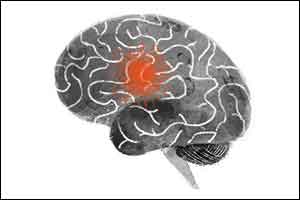- Home
- Editorial
- News
- Practice Guidelines
- Anesthesiology Guidelines
- Cancer Guidelines
- Cardiac Sciences Guidelines
- Critical Care Guidelines
- Dentistry Guidelines
- Dermatology Guidelines
- Diabetes and Endo Guidelines
- Diagnostics Guidelines
- ENT Guidelines
- Featured Practice Guidelines
- Gastroenterology Guidelines
- Geriatrics Guidelines
- Medicine Guidelines
- Nephrology Guidelines
- Neurosciences Guidelines
- Obs and Gynae Guidelines
- Ophthalmology Guidelines
- Orthopaedics Guidelines
- Paediatrics Guidelines
- Psychiatry Guidelines
- Pulmonology Guidelines
- Radiology Guidelines
- Surgery Guidelines
- Urology Guidelines
Dual antiplatelet therapy only up to 3 weeks in minor stroke: Expert Panel

According to a new BMJ Rapid Recommendations article, short-term dual antiplatelet therapy up to 3 weeks may be beneficial for patients in minor Stroke. In addition to this Patients with a minor ischemic stroke or high-risk transient ischemic attack (TIA) should start dual antiplatelet therapy with aspirin plus clopidogrel as soon as possible after the event, preferably within 24 hours.
The recommendations in this clinical practice guideline are based on a linked systematic review triggered by a randomised controlled trial published in the New England Journal of Medicine in August 2018.
Key Recommendations-
- People with high risk transient ischaemic attack or minor ischaemic stroke are at an increased risk of recurrent stroke and death
- Aspirin and clopidogrel decrease this risk, even more so when used in combination
- We make a strong recommendation for dual antiplatelet therapy (DAPT) with clopidogrel and aspirin to be started within 24 hours in patients who have had a high risk transient ischaemic attack or minor stroke
- We make a strong recommendation for DAPT to be continued for 10-21 days, at which point patients should continue with aspirin alone.
- Most patients should probably continue to take a single antiplatelet, often aspirin, indefinitely.
- DAPT is not to be used for major stroke because of the increased risk of intracranial bleeding in these patients.
- If a patient's stroke workup reveals an indication for anticoagulation (e.g., atrial fibrillation), patients should switch from antiplatelet therapy to anticoagulation.
The current practice is the use of single antiplatelet therapy with aspirin or clopidogrel is an effective intervention for both short and long-term secondary prevention of stroke and transient ischaemic attack after an index event. The dual antiplatelet therapy is discouraged because of following reasons-
- They are not useful in the long term after a stroke.
- They are considered too risky after a major stroke.
- The balance of benefit and harm is uncertain for short-term use after a minor stroke or high-risk transient ischaemic attack.
This meta-analysis and new guideline reinforce that short-term (up to 3 weeks) dual antiplatelet therapy with aspirin plus clopidogrel may be beneficial for patients with TIA or minor stroke.
For further reference log on to :
doi: https://doi.org/10.1136/bmj.k5130

Disclaimer: This site is primarily intended for healthcare professionals. Any content/information on this website does not replace the advice of medical and/or health professionals and should not be construed as medical/diagnostic advice/endorsement or prescription. Use of this site is subject to our terms of use, privacy policy, advertisement policy. © 2020 Minerva Medical Treatment Pvt Ltd